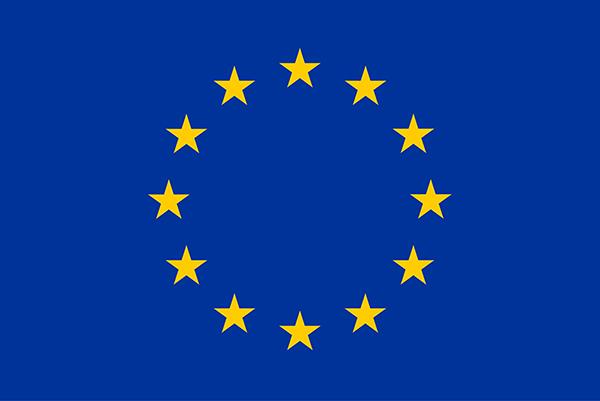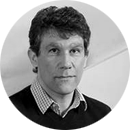Citizenship, Recovery and Inclusive Society Partnership (CRISP)
The trans-atlantic CRISP Partnership (2016-2019) consisted of non-governmental mental health organisations and universities. The main objectives of the CRISP network were to promote social inclusion, citizenship, and human rights of people with lived experience of mental health problems, with a special focus on intersectionality. CRISP was funded by the EU Horizon 2020 research programme.

People with mental health problems experience significant inequalities including high levels of early mortality, morbidity, unemployment, poverty, isolation and social exclusion presenting major health, social and economic challenges to wider society.
The main objectives of the CRISP network included sharing and disseminating learning in terms of ‘what works’ to promote citizenship, recovery and social inclusion in different social contexts. Particular attention was given to issues of intersectionality and how to promote social inclusion, citizenship, and human rights of people with lived experience of mental health problems.
The international CRISP network united leaders from academia, policy, practice, business and community organisations from the EU and the US. CRISP was funded by the MARIE SKLODOWSKA-CURIE ACTIONS, RESEARCH AND INNOVATION STAFF EXCHANGE (RISE). The CRISP network was co-ordinated by Neil Quinn at UNIVERSITY OF STRATHCLYDE and included NEW YORK UNIVERSITY, MENTAL HEALTH FOUNDATION, MIELI MENTAL HEALTH FINLAND, ULM UNIVERSITY, YALE UNIVERSITY AND ILLINOIS INSTITUTE OF TECHNOLOGY.
The CRISP work covered four key areas of mental health namely citizenship, recovery, stigma, and public policy.
Citizenship and Participatory Research
Citizenship has an established significance in social and political life, although is often overlooked in terms of health, especially mental health. Implications of being excluded from citizenship are high, with those not able to claim or exhibit their citizenship being construed as being in deficit to society, having fewer rights and consequently not considered full citizens. Citizenship is a useful way of understanding how people with characteristics that set them apart from mainstream society (for example in conjunction with mental health problems or disabilities) are excluded from society.
The focus of this work package was to investigate what influences the transition from isolation to inclusion, and what is important for people with lived experience of mental health problems on their journey to reclaim their citizenship.
Led by Michael Rowe at Yale University, this work was based on Rowe’s and colleagues’ framework of 5Rs (Rights, Responsibilities, Roles, Resources and Relationships). The work was underpinned by principles of Community Based Participatory Research (CBPR), a partnership approach to research that equitably involves community members, agency representatives and researchers in all aspects of the research process, and in which all partners contribute expertise and share decision making and ownership. CBPR approaches generate human and social capital that is difficult to acquire through other approaches in the domain of mental health and of the socioeconomic marginalization associated with it.
Promoting Recovery and Person-Centred Care
With roots in the civil rights movements of the 1960s and 70s the recovery movement in mental health is currently spreading across the globe, supported by the principles outlined in the UN Convention of Rights for People with Disabilities. The recovery movement has profoundly challenged the way we understand mental illness, shifting the lens from a medical model that focuses on deficits and symptom reduction, to an empowerment model that understands wellness holistically in terms of what it means to pursue a meaningful life. Although we are far from finding a cure for mental illness, people do recover from it, both in traditional terms of symptom remission but also in the broader sense of being able to lead a meaningful life.
This work was led by Victoria Stanhope at New York University, based on different innovations in terms of how people with lived experience can be supported and empowered in the community in the USA and Europe. This work package of CRISP brought together people from multiple sectors across different countries creating opportunities to share such innovations.
Addressing Stigma and Discrimination
Stigma and discrimination undermine the life chances of people with mental health problems, potentially leading to reduced self-esteem, social isolation, chronic stress and delayed help seeking as well as recovery pessimism, fear, social distance, and blame. A fundamental barrier to full societal inclusion for people with lived experience of mental health problems has been civil rights abuses and discrimination driven by stigma. The sources of stigma are both structural and interpersonal.
There are new trends on how to understand and tackle stigma. Previous research has centred around defining and measuring reported stigma and developing anti-stigma campaigns. However, despite international anti-stigma initiatives and policy developments stigma and its consequences persist. Moreover, multiple vulnerabilities related to ethnicity, migration, poverty etc. can exacerbate mental health problems and result in even greater levels of stigma and discrimination.
The work on stigma and discrimination was led by Nicolas Rüsch, Ulm University, and Patrick W. Corrigan, IIT Chicago.
Public Policy
The fourth work package focused on public policy, with the aim of analyzing impact of policy and the participation of people with lived experience of mental health problems in policy formulation. Policies can enable or inhibit social inclusion, empowerment and citizenship of people with mental health problems.
The mental health of a population is affected by a range of public policies, such as labour policies, social protection policies and education policies. An important debate for many countries is how mental health can be improved through policy actions.
This work was led by Kristian Wahlbeck at MIELI Mental Health Finland by a cross-sector discussion between researchers, experts by experience, policy makers advocates and practitioners around how public policy must change in order to address social and economic determinants of health and equity.
Strengthening the interface between public policy and population mental health has been prioritized at EU level through the Member States and Commissions Joint Action for Mental Health including a work package on Mental Health and Wellbeing in all Policies, delivered by MIELI. Different public policies from different sectors can impact mental health equity and due to this necessary breadth of frameworks, policy makers need to be able to rely on guidance and direction from reliable resources. Engaging and nurturing relationships with stakeholders is an important step in the process. Successful policy actions build on policy development by exchange of data, evidence and expertise, implementation of mental health impact assessment and by monitoring of mental health and mental health equity outcomes.
This project has received funding from the European Union’s Horizon 2020 research and innovation programme under the Marie Sklodowska-Curie grant agreement No 690954.
CRISP Project co-ordinators

Lee Knifton, University of Strathclyde
